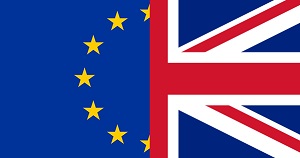The majority of senior UK marketers think that staying in the EU will be best for their business, but most are unaware of its perks (such as the Digital Single Market), according to new research.
The research, from email provider, Mailjet, was conducted amongst 278 senior UK marketers.
The findings indicate that understanding of the perks of the European Union are at a low among senior marketers in the UK, with 59% admitting they have not heard of the Digital Single Market policy guidance.
Of those that have, 33% admitted little or no understanding of its contents.
Digital Single Market explained
The Digital Single market aims to abolish trade barriers and online access across the 28 EU countries. This means video services such as iPlayer and Netflix are accessible across all territories, expensive mobile data roaming charges are abolished and international parcel deliveries are cheaper.
The deal aims to establish a unified and borderless regulatory framework for the internet across the continent with the intention of becoming the online equivalent of the existing EU single market.
The commission says one of their objectives is that EU residents can enjoy “the same online content and services regardless of the EU country (they) are in”.
The European Commission estimates that the plans could create up to €340bn (£250bn) in additional growth.
The EC estimates that only 7% of small businesses sell across EU borders and that more choice could save consumers’ money.
No impact?
Despite this lack of awareness, over a third (34%) believe the Digital Single Market will have no impact on their business whatsoever. In fact, as many as 31% also feel that a British departure from the European Union would be beneficial to their company.
This feeling was strongest among start-ups, nearly half of whom (45%) couldn’t see the single market initiative having any positive effect on the running of their business. Similarly, 48% wrote-off the idea of a single marketing strategy between the 26 European Union countries as impossible.
Big business sees a brighter future
Awareness is much higher among larger businesses and conglomerates, where nearly three quarters of senior marketers (72%) have some familiarity with the contents of the Digital Single Market policy. At this level, 80% believe the policy guidance will have a positive effect on their business, and 87% also believe it will be at least somewhat effective in driving change for other businesses across Europe.
The sectors which are expected to benefit the most from the Digital Single Market are technology (61%), finance (51%) and media (48%).
Seizing opportunity overseas
When it comes to expanding communications across Europe and into new territories, only 1 in 10 senior marketers (11%) see in-app and push notifications to mobile devices as having the power to deliver personalised content to prospects at scale.
Surprisingly, nearly half (45%) believe this personalisation can be achieved via social media, suggesting a significant knowledge gap when it comes to the strategic role of this channel.
Fortunately, the most capable channel for creating truly bespoke consumer interactions in new territories, email marketing, came second with around a quarter of the vote (24%).
The study also drew some interesting results regarding multichannel strategy:
· 1 in 5 companies (22%) with an income of over £100m don’t have a multi-channel marketing strategy at all
· less than a tenth (6%) of all respondents have looked to integrate mobile
While startups focusing more on just one channel makes sense due to their budget and resource, for larger organisations this indicates a more strategic cause for concern. Added to this, less than a tenth (6%) have looked to integrate mobile.
Amir Jirbandey, UK Marketing Manager at Mailjet said, “After more than four decades within the European Union, the UK is fast approaching a crossroads that carries different implications for every company. We’ve seen from the research that big business understands how initiatives such as the Digital Single Market policy will offer marketers new efficiencies across their European campaigns. For smaller businesses and startups that lack the same dedicated marketing function, it is down to the government to help raise awareness about the relevance and strategic implications of the new policy guidelines.”
“Starting this dialogue now, holds the key to sparking greater questions within organisations about the strategy with which they are approaching new market audiences and the channels being used to engage individual consumers. SMEs currently reviewing the pros and cons of Brexit must make sure they understand how their campaigns and results across the continent might change in a world where Britain sits outside the EU.”
Methodology
The research was conducted amongst 278 senior marketers across the United Kingdom in February 2016.
Source: http://www.mailjet.com
